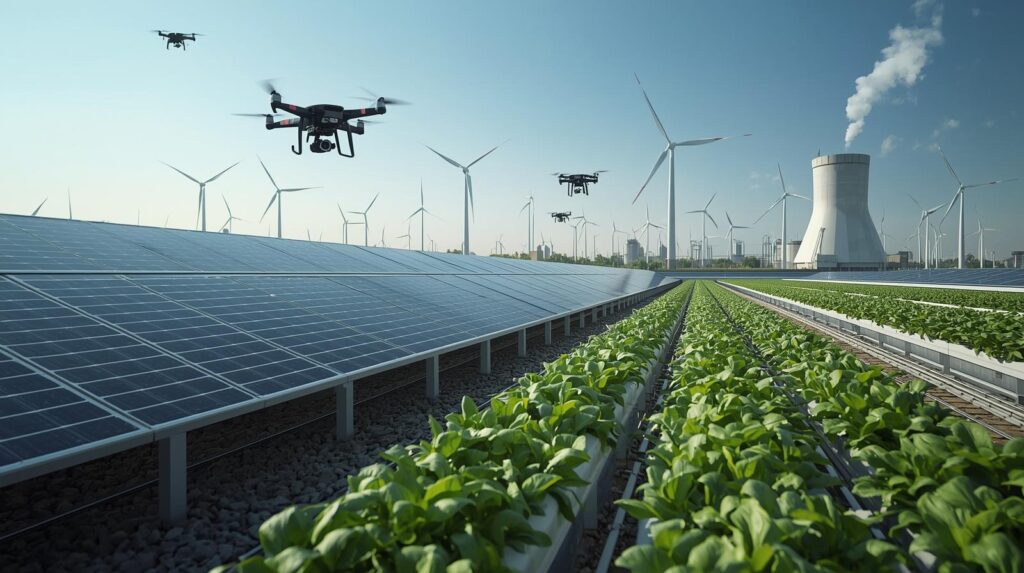Technology has become the heartbeat of modern civilization. It influences every aspect of life—how we communicate, work, learn, travel, and even think. From the invention of the wheel to the rise of artificial intelligence, technology has always been the force that drives human progress. Understanding the importance of technology helps us appreciate how deeply it shapes our world and why it remains essential to our future.
Technology as the Foundation of Modern Society
In today’s world, technology is not just a convenience—it is a necessity. It connects people across continents, streamlines industries, and improves the quality of everyday life. Whether it is healthcare, education, business, or entertainment, technology enables efficiency and accessibility that were once unimaginable.
For individuals, technology has made daily tasks simpler and more efficient. Smartphones allow instant communication, GPS systems provide navigation, and online platforms give people access to information and services in seconds. For society as a whole, technology fuels economic growth, supports innovation, and builds stronger communities through global connectivity.
The Role of Technology in Education
One of the most profound impacts of technology is in education. The traditional classroom has transformed into a global learning environment, where students can access knowledge from anywhere at any time. Interactive tools, virtual simulations, and online courses have made education more engaging and inclusive.
Technology also helps educators personalize learning experiences based on each student’s pace and style. Artificial intelligence and data analytics are now used to assess performance and adapt lesson plans, ensuring that every learner reaches their full potential. In the United States and around the world, technology in education continues to bridge gaps and open doors to new opportunities.
Technology and Economic Growth
The modern economy runs on technology. Every major industry—from agriculture to finance—relies on technological innovation to remain competitive. Automation, artificial intelligence, and robotics have redefined productivity, making businesses more efficient and capable of meeting growing demands.

Technology also fuels entrepreneurship and job creation. The rise of the digital economy has given birth to countless startups and remote work opportunities, reshaping the global workforce. In the United States, technology companies drive much of the economic expansion, investing in research, innovation, and infrastructure that benefit society as a whole.
The Impact of Technology on Healthcare
In the field of healthcare, technology saves lives every day. From advanced diagnostic machines to telemedicine and wearable devices, technological innovations have improved patient care and accessibility. Doctors can now monitor vital signs remotely, detect diseases earlier, and perform complex surgeries with robotic precision.
Technology also plays a key role in medical research. Data analysis, artificial intelligence, and biotechnology are accelerating discoveries that were once impossible. The COVID-19 pandemic highlighted how vital technology is in tracking data, developing vaccines, and providing virtual healthcare services.
Communication and Global Connectivity
The digital age has revolutionized how people connect. Technology has eliminated barriers of time and distance, allowing instant communication through emails, video calls, and social media. This global connectivity has strengthened relationships, promoted collaboration, and expanded access to knowledge and culture.
For businesses, digital communication tools enable seamless collaboration across continents. For individuals, they provide a voice to share ideas, express creativity, and participate in global conversations. Technology has truly made the world a smaller and more connected place.
Technology in Environmental Sustainability
Beyond convenience and economic growth, technology is vital for addressing global challenges such as climate change and environmental degradation. Renewable energy systems, electric vehicles, and smart infrastructure are examples of how innovation supports sustainability.

Technology helps monitor environmental changes through satellites, sensors, and data analysis. It allows scientists to track weather patterns, predict natural disasters, and develop solutions that reduce carbon emissions. In this way, technology is not just advancing society—it is protecting the planet for future generations.
The Role of Technology in Innovation and Research
Innovation thrives on technology. Every breakthrough in science, engineering, and medicine depends on advanced tools and systems that make research faster and more precise. Supercomputers, laboratory automation, and digital modeling allow scientists to test ideas, analyze results, and develop solutions with greater accuracy than ever before.
This constant cycle of innovation drives progress. Each technological advancement creates opportunities for new discoveries, products, and industries, reinforcing technology’s importance as the foundation of modern civilization.
Technology and Everyday Life
Technology is deeply embedded in daily life. It powers homes, fuels transportation, and shapes entertainment. From streaming services to smart home systems, technology provides comfort and convenience that define the modern lifestyle.
Even simple tasks—such as shopping, paying bills, or learning new skills—are now driven by technology. It saves time, improves access, and enhances the overall quality of life. In a world that depends on speed, accuracy, and communication, technology is the bridge that connects ideas to action.
The Future of Technology
The importance of technology continues to grow as new innovations emerge. Artificial intelligence, quantum computing, robotics, and biotechnology are transforming industries and redefining what is possible. As technology evolves, so does its potential to solve global problems and shape the future of humanity.

However, with great power comes great responsibility. Ethical use of technology, data privacy, and digital equity are crucial for ensuring that technological progress benefits everyone. Education, awareness, and collaboration will be key in guiding the next era of innovation responsibly.


